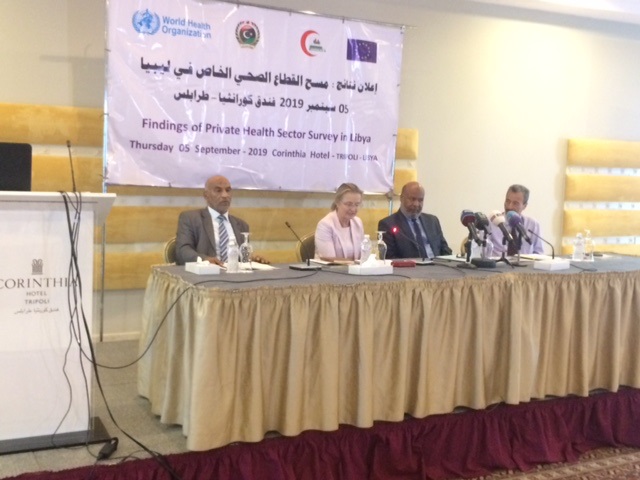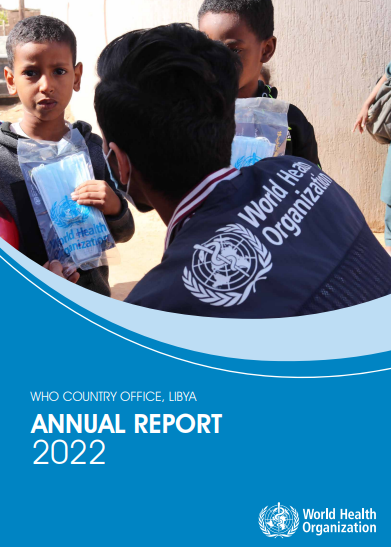
15 September 2019 – The Libyan Ministry of Health, in partnership with WHO, has disseminated the findings of a survey on the private health sector in Libya at a workshop held on 5 September that was co-chaired by the Minister of Health and the WHO Representative, and attended by Ministry of Health staff and representatives of private sector hospitals and United Nation agencies.
The study, conducted in last quarter of 2018, revealed similar trends to those observed in other countries in emergency situations, such as Iraq and Syrian Arab Republic. The study found that during 2007–2018, the number of inpatient clinics had increased by 71.49%, laboratories and pharmacies by 50% and diagnostic centres by 80%. Currently, the private health sector consists of 537 outpatient centres, 235 inpatients centres, 371 dental clinics, 3089 pharmacies, 411 laboratories and 19 diagnostic imaging centres. Furthermore, there are 348 ultrasound machines, 41 CT scanners, 147 X-ray machines, 35 angiography systems and 23 MRI machines in the sector.
The Minister of Health thanked WHO for its technical support and acknowledged the generous support of the European Union (EU) in supporting Libya in modernizing and strengthening its health information system. He appealed to private investors to invest in the private health sector, which will not only enhance the quality of curative services, but will also significantly reduce the financial burden on the government.
Ms Elizabeth Hoff, WHO Representative, thanked the Ministry of Health's Health Information Centre for generating such valuable evidence on the status of the private health sector in Libya. She also thanked private investors for investing in such a challenging environment. Ms Hoff said that the role of the private sector should be encouraged in order to achieve the goals of universal health coverage. She encouraged the Ministry of Health to engage with the private health sector and to develop a public-private partnership strategy focusing on underserved areas and vulnerable populations, without compromising on the quality of care. Finally, she thanked the EU for their remarkable support for the Libyan health information system.





 Libya country office annual report, 2022
Libya country office annual report, 2022
